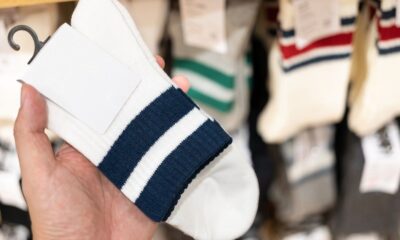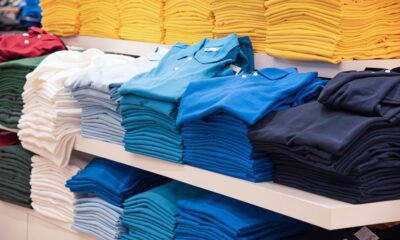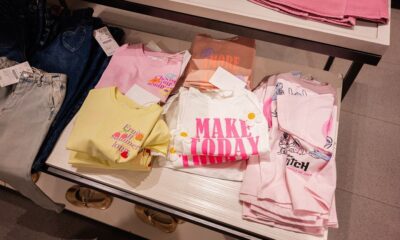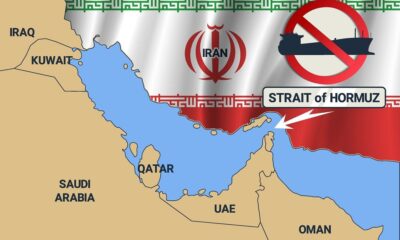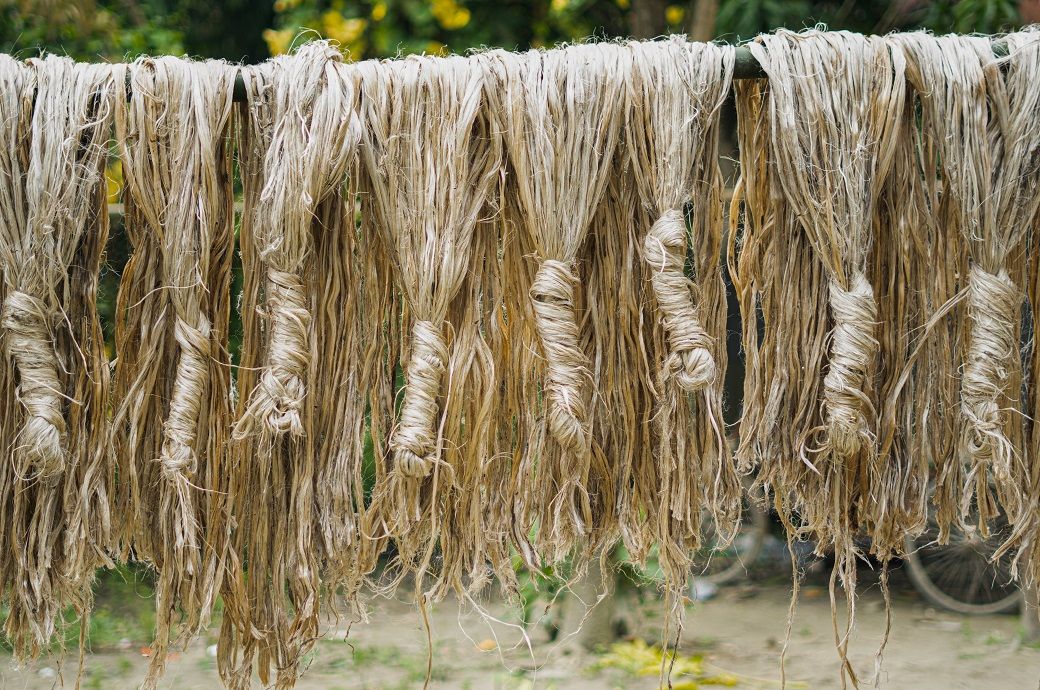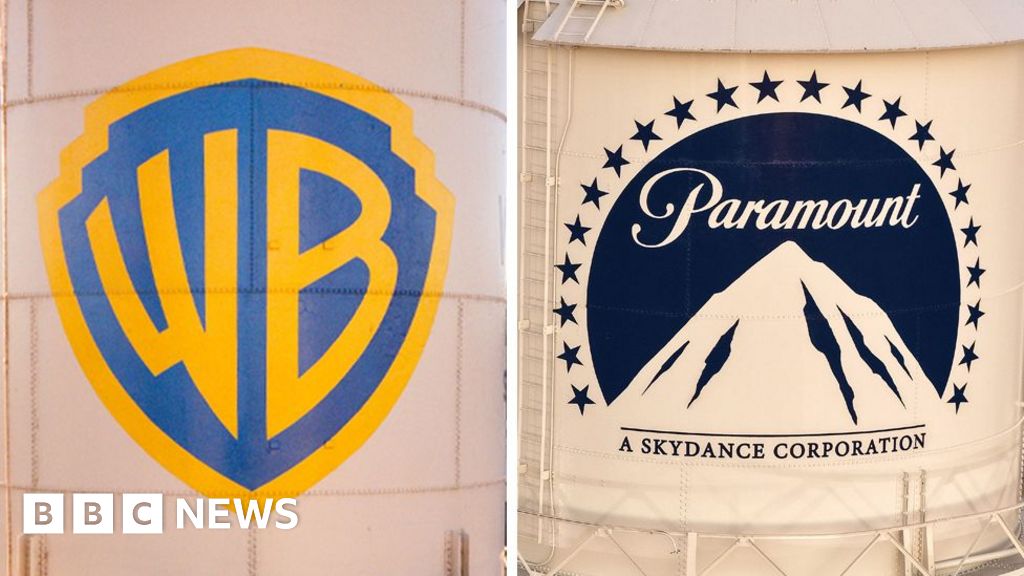Fashion
Goldsmiths upsizes at Merry Hill mall

Published
September 30, 2025
Midland’s Merry Hill mall is adding to a series of retail upsizes, with British jeweller Goldsmiths now unveiling a “significantly larger unit at the top 10 super-regional centre”.
Located in the heart of the Upper Mall, Goldsmiths has moved from its existing 2,700 sq ft space into a 6,000 sq ft unit opposite the soon-to-launch new M&S, merging two units for a new state-of-the-art store.
The upsize, in a key corner unit allowing for a full glass wrap-around façade, features a larger dedicated Rolex room, alongside branded areas from Omega, TAG Heuer, Tudor, Longines, and Tissot. It also benefits from the addition of Rolex Certified Pre-Owned and Longines branded areas, for an even more extensive range of watches.
Goldsmiths joins the likes of Footasylum, Costa, and EE, all of which having grown their presence at Merry Hill in the last 12 months, “investing heavily in upgrading the store experience”.
Alistair Winning, Asset Manager for operator Sovereign Centros from CBRE, said: “The arrival of Goldsmiths’ upsized store has been a much-anticipated addition, highlighting our tenants’ dedication to investing in Merry Hill.
“By expanding, the brand is playing an even bigger part in fulfilling our visitors’ demand for premium jewellery, with Merry Hill’s success in this category built on an understanding of what our catchment wants to spend its money on.”
Copyright © 2025 FashionNetwork.com All rights reserved.
Fashion
Bangladesh commerce minister seeks Chinese investment in jute sector
Fashion
Sri Lanka’s apparel exports down 2.6% in January 2026

Total apparel shipments fell by 2.66 per cent year on year to $425.44 million in January 2026, compared with $437.07 million in the corresponding month of 2025. The performance underscored uneven global demand conditions that continue to influence sourcing patterns and order flows for Sri Lankan manufacturers.
Sri Lanka’s apparel exports declined 2.66 per cent YoY to $425.44 million in January 2026 amid weak global demand.
Shipments to the US and EU softened, while the UK remained stable with slight growth.
Other markets saw sharper contraction.
JAFF highlighted DCTS benefits and tariff changes while suggesting diversification and efficiency to sustain competitiveness.
Exports to the United States, the country’s largest market, decreased by 2.73 per cent to $165.11 million, while shipments to the European Union excluding the United Kingdom, declined by 1.93 per cent to $126.99 million. In contrast, exports to the UK remained broadly stable, rising marginally by 0.23 per cent to $61.71 million. Apparel shipments to other markets dropped more sharply by 6.07 per cent to $71.63 million.
JAAF noted that the UK’s steady performance offers a constructive signal for the sector, particularly as the revised Developing Countries Trading Scheme (DCTS), effective January 1, 2026, is expected to enhance sourcing flexibility and strengthen Sri Lanka’s competitive position in the British market.
The industry body also highlighted the introduction of a uniform 10 per cent temporary tariff in the US market as a relatively supportive development, reducing the impact of previously higher country-specific rates and providing greater short-term pricing predictability for exporters.
Commenting on the January outcome, JAAF said the moderate decline reflects ongoing volatility in global demand. The association emphasised that the industry remains committed to reinforcing resilience through market diversification, product innovation and operational efficiency, while collaborating with stakeholders to sustain Sri Lanka’s standing as a reliable apparel sourcing destination.
Fibre2Fashion News Desk (KUL)
Fashion
Italy’s Moncler FY25 revenue reaches $3.69 bn with resilient margins
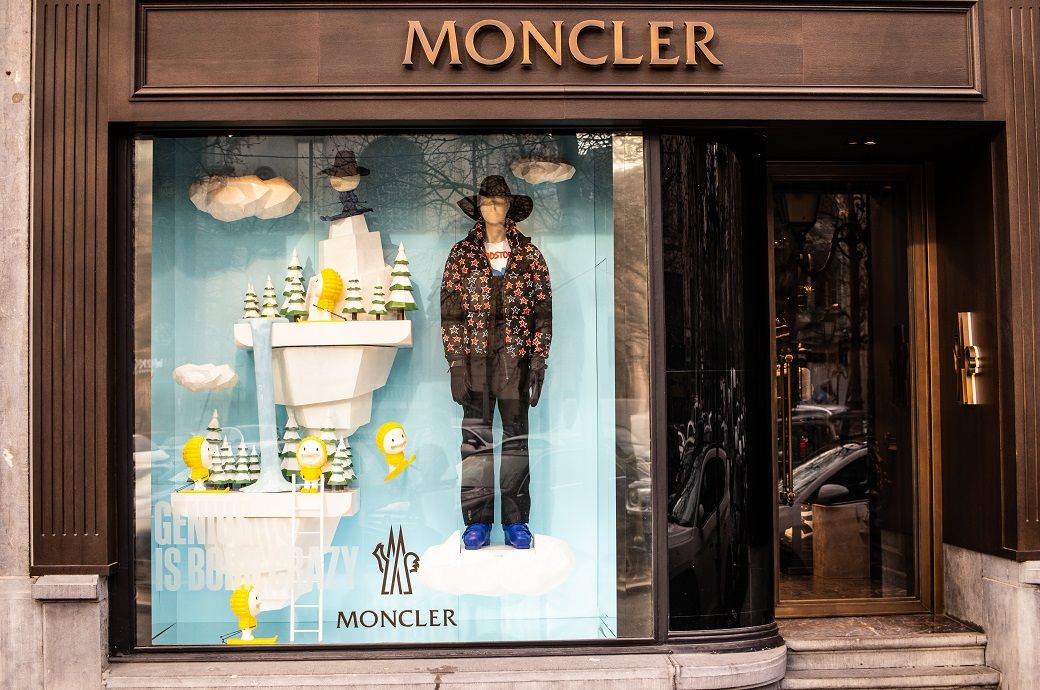
Profitability remained robust despite a more challenging trading backdrop. Group EBIT stood at €913.4 million, broadly stable year on year (YoY), translating into a 29.2 per cent margin versus 29.5 per cent in FY24. Net profit reached €626.7 million compared with €639.6 million a year earlier, reflecting higher net financial expenses, while maintaining a 20 per cent margin.
Moncler has reported revenues of €3.13 billion (~$3.69 billion) in FY25, up 3 per cent at constant exchange rates, with net profit of €626.7 million (~$739.5 million).
Asia led regional growth, while DTC channels strengthened across brands.
Q4 revenues rose 7 per cent, driven by robust Moncler and Stone Island performance, as the group prepares for continued investment and leadership transition.
Regionally, the group recorded strong momentum in Asia, where revenues rose 7 per cent at constant exchange rates to €1.42 billion, supported by demand in China and Korea and a recovery in tourist flows. The Americas increased 5 per cent to €391.1 million, whereas Europe, Middle East and Africa (EMEA) declined 3 per cent amid subdued tourism-related traffic, Moncler said in a press release.
Channel performance highlighted the continued shift towards direct engagement. Moncler’s direct-to-consumer (DTC) revenues rose 4 per cent to €2.36 billion, accounting for nearly 87 per cent of brand sales, while wholesale declined 4 per cent as the group continued to enhance distribution quality. Stone Island’s DTC channel expanded 11 per cent to €226.4 million, whereas wholesale decreased 4 per cent.
The group’s financial position strengthened further, with net cash reaching €1.46 billion at year-end after dividend payments of €353.2 million. The board proposed a dividend of €1.4 per share and approved the consolidated sustainability statement.
Remo Ruffini, chairman and CEO of Moncler, said: “Moncler and its board of directors wish to express their most sincere thanks to Gabriele Galateri di Genola for his dedication and the highly valuable contribution he has made throughout his more than ten-year term of office. His significant experience, the vision developed over many years in senior leadership positions at leading industrial and financial organisations, as well as his constant commitment to good governance, have represented a key point of reference for our work. With gratitude, we extend our best wishes to Gabriele Galateri di Genola for the future.”
In the fourth quarter (Q4), the group delivered accelerated momentum, with revenues rising 7 per cent at constant exchange rates to €1.29 billion (~$1.52 billion). Moncler brand revenues reached €1.17 billion, up 6 per cent, while Stone Island posted €123.1 million, surging 16 per cent with double-digit growth across all regions.
Moncler’s DTC channel advanced 7 per cent despite a demanding comparable base in the quarter, supported by Asia and the Americas, while wholesale returned to growth, rising 2 per cent. Stone Island recorded broad-based acceleration, with DTC revenues increasing 16 per cent and wholesale climbing 17 per cent, partly reflecting delivery timing shifts from the previous quarter.
Looking ahead, the group emphasised continued investment in brand development and organisational strengthening, including the appointment of Leo Rongone as group chief executive officer from April 2026, as it seeks to sustain long-term growth and value creation.
Fibre2Fashion News Desk (SG)
-

 Tech1 week ago
Tech1 week agoA $10K Bounty Awaits Anyone Who Can Hack Ring Cameras to Stop Sharing Data With Amazon
-

 Business1 week ago
Business1 week agoUS Top Court Blocks Trump’s Tariff Orders: Does It Mean Zero Duties For Indian Goods?
-

 Fashion1 week ago
Fashion1 week agoICE cotton ticks higher on crude oil rally
-

 Business6 days ago
Business6 days agoEye-popping rise in one year: Betting on just gold and silver for long-term wealth creation? Think again! – The Times of India
-

 Tech1 week ago
Tech1 week agoDonald Trump Jr.’s Private DC Club Has Mysterious Ties to an Ex-Cop With a Controversial Past
-
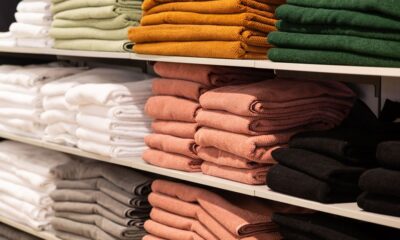
 Fashion1 week ago
Fashion1 week agoIndia’s $28 bn reset: How 5 trade deals will reprice its T&A exports
-

 Sports1 week ago
Sports1 week agoBrett Favre blasts NFL for no longer appealing to ‘true’ fans: ‘There’s been a slight shift’
-

 Entertainment1 week ago
Entertainment1 week agoThe White Lotus” creator Mike White reflects on his time on “Survivor


